Somaliland’s economy is in its developing stages, as is the region itself. The Somaliland shilling (SlSh)is the countries main currency. It is regulated by the Bank of Somaliland, the central bank, which was established constitutionally in 1994.
Remittances
The World Bank estimates that remittances worth approximately $US 1 billion reach Somalia annually from emigres working in the United States, Europe, and the Gulf states. Analysts say that Dahabshiil may handle around two-thirds of that figure, and that as much as half of it reaches Somaliland alone.
The port city of Berbera
Since the late 1990s, service provision has significantly improved as a result of limited government provision and contributions from non-governmental organisations, religious groups, the international community (especially the Diaspora) and the growing private sector. Local and municipal governments have been developing the provision of key public services, such as water in Hargeisa and education, electricity and security in Berbera.
Agriculture is generally considered to be a potentially successful industry, especially in the production of cereals and horticulture. The backbone of the economy is livestock. The total livestock in the country is estimated at 24 million. In 1998, 3.5 million heads of livestock were exported to the Middle Eastern countries like Saudi Arabia which is the main market for the livestock export.
Mining also has potential, though simple quarrying represents the extent of current operations despite the presence of hugely diverse quantities of mineral deposits. Mining is limited to quarrying at the moment. There are, however, confirmed deposits of: Oil, Gas, Gypsum, Lime, Mica, Quartz, Lignite Coal, Lead, Gold, Sulphur.
CURRENCY The official Somaliland currency is the Somaliland shilling (SlSh). The exchange rate the shilling against the US Dollar in end of December 2008 was: US$1 = Somaliland Shillings 7,500 IMPORTS & EXPORTS
